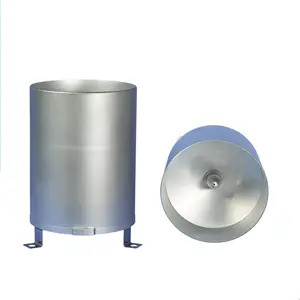

Pulse Or RS485 Output ABS PC Plastic 0.2mm Resolution Tipping Bucket Rain Gauge For Weather Station Or Agriculture

Easily Readable Digital Tire Pressure Gauge For Car SUV Truck Tire Pressure With Practical Additional Functions







A compound gauge is a versatile instrument designed to measure both positive and negative pressures, commonly referred to as gauge pressure and vacuum. This dual functionality makes it an indispensable tool in various industrial applications, from HVAC systems to refrigeration and beyond. The utility of a compound gauge in refrigeration is particularly notable, as it accurately monitors the system's pressure to ensure optimal performance.
The market offers a myriad of compound gauges, including analog and digital compound gauge models. Each type comes with unique features tailored to specific industry needs. For instance, a digital pressure gauge provides precise readings and often includes digital displays for easy monitoring. In contrast, an analog compound dial gauge is known for its durability and long service life, making it suitable for environments where digital devices might fail.
The application range of compound pressure gauges is vast. In the realm of HVAC, a compound gauge HVAC is crucial for maintaining systems within safe operating pressures. Similarly, the compound gauge refrigeration variant ensures that refrigeration units function efficiently by providing accurate pressure and vacuum readings. Industrial sectors also rely on these gauges, with the compound pressure gauge in refrigeration being particularly critical for food safety and quality control.
Manufacturers often use robust materials to construct compound gauges, ensuring they can withstand harsh conditions. For example, a wika compound gauge is known for its resilience against corrosive substances, while an ashcroft compound gauge might be recognized for its vibration resistance. These material choices contribute to the gauges' longevity and reliability, which are essential in industrial settings.
Selecting the appropriate compound pressure and vacuum gauge requires understanding the specific needs of your application. Factors to consider include measurement range, environment, and whether a digital or analog display is most suitable. For specialized environments, a trerice compound gauge might be the best fit due to its specific design considerations.
Maintaining the accuracy of a compound gauge is crucial for its continued reliability. Regular calibration and proper care are essential, especially for devices like a compound gauge working in demanding conditions. Users should follow the manufacturer's guidelines to ensure the longevity and precision of their gauges.